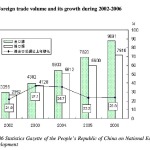Umberto Eco ~ Ur-Fascism
No Comments yet![]() We must keep alert, so that the sense of these words will not be forgotten again. Ur-Fascism is still around us, sometimes in plainclothes. It would be so much easier, for us, if there appeared on the world scene somebody saying, “I want to reopen Auschwitz, I want the Black Shirts to parade again in the Italian squares.” Life is not that simple. Ur-Fascism can come back under the most innocent of disguises. Our duty is to uncover it and to point our finger at any of its new instances—every day, in every part of the world. Franklin Roosevelt’s words of November 4, 1938, are worth recalling: “I venture the challenging statement that if American democracy ceases to move forward as a living force, seeking day and night by peaceful means to better the lot of our citizens, fascism will grow in strength in our land.” Freedom and liberation are an unending task.
We must keep alert, so that the sense of these words will not be forgotten again. Ur-Fascism is still around us, sometimes in plainclothes. It would be so much easier, for us, if there appeared on the world scene somebody saying, “I want to reopen Auschwitz, I want the Black Shirts to parade again in the Italian squares.” Life is not that simple. Ur-Fascism can come back under the most innocent of disguises. Our duty is to uncover it and to point our finger at any of its new instances—every day, in every part of the world. Franklin Roosevelt’s words of November 4, 1938, are worth recalling: “I venture the challenging statement that if American democracy ceases to move forward as a living force, seeking day and night by peaceful means to better the lot of our citizens, fascism will grow in strength in our land.” Freedom and liberation are an unending task.
In 1942, at the age of ten, I received the First Provincial Award of Ludi Juveniles (a voluntary, compulsory competition for young Italian Fascists—that is, for every young Italian). I elaborated with rhetorical skill on the subject “Should we die for the glory of Mussolini and the immortal destiny of Italy?” My answer was positive. I was a smart boy.
I spent two of my early years among the SS, Fascists, Republicans, and partisans shooting at one another, and I learned how to dodge bullets. It was good exercise.
In April 1945, the partisans took over in Milan. Two days later they arrived in the small town where I was living at the time. It was a moment of joy. The main square was crowded with people singing and waving flags, calling in loud voices for Mimo, the partisan leader of that area. A former maresciallo of the Carabinieri, Mimo joined the supporters of General Badoglio, Mussolini’s successor, and lost a leg during one of the first clashes with Mussolini’s remaining forces. Mimo showed up on the balcony of the city hall, pale, leaning on his crutch, and with one hand tried to calm the crowd. I was waiting for his speech because my whole childhood had been marked by the great historic speeches of Mussolini, whose most significant passages we memorized in school. Silence. Mimo spoke in a hoarse voice, barely audible. He said: “Citizens, friends. After so many painful sacrifices … here we are. Glory to those who have fallen for freedom.” And that was it. He went back inside. The crowd yelled, the partisans raised their guns and fired festive volleys. We kids hurried to pick up the shells, precious items, but I had also learned that freedom of speech means freedom from rhetoric.
Read more: https://web.archive.org/http://www.nybooks.com/articles/ur-fascism/
You May Also Like
Comments
Leave a Reply








